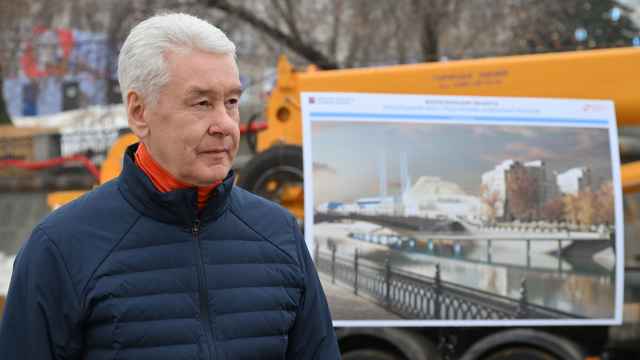UNITED NATIONS — The U.N. peacekeeping department said it temporarily suspended the contracts of two Russian air transportation firms active in Sudan and the Democratic Republic of the Congo after several staff were charged with sexual abuse of local residents.
The sexual abuse was "extremely serious, very, very bad stuff," a source familiar with the decision of the U.N. Department of Peacekeeping Operations, or DPKO, said on condition of anonymity. He did not offer any specific details.
DPKO spokesman Kieran Dwyer confirmed that some allegations of severe sexual misconduct against several employees of UTair Aviation and Nefteyugansk United Airline, which provide airplane and helicopter services for U.N. missions in Sudan's western Darfur region and in Congo, were found to be true.
"We are fully aware of the incident you are referring to, and in this case the U.N. has taken appropriate action," Dwyer said in a statement.
"An investigation was conducted and concluded that some allegations against certain contract personnel were substantiated," he said. "The two air operators were temporarily suspended and the employees involved were dismissed and barred from future participation in any U.N. missions."
UTair and Nefteyugansk are operating flights again for the United Nations, but are being closely monitored by the United Nations, Dwyer said.
The two Russian firms did not respond to requests for comment. It was unclear how long their contracts were suspended.
"An independent compliance monitor was engaged to assess, monitor and report to the U.N. on the vendors' programs, policies, measures and procedures to prevent their personnel from engaging in sexual exploitation and abuse as defined in the Secretary-General's policy," he said.
If the companies fail to convince the compliance monitors and the United Nations that they have taken measures to prevent such misconduct in the future, Dwyer said the world body "could bar these companies from doing further business with the U.N."
It was not immediately clear what, if any, follow-up actions Russia would take against those guilty of misconduct.
A spokesman for Russia's U.N. mission did not respond to repeated requests for comment. The Congolese ambassador said he was looking into the matter.
Sudanese U.N. Ambassador Daffa-Alla Elhag Ali Osman, however, said he did not want to say anything that would negatively affect the image of Russian pilots operating flights for UNMAMID, the U.N.-African Union mission in Darfur, which he said was being regularly harassed by South Sudanese.
"Anything that tarnishes the reputation of the Russian pilots distracts from the real issue here, which is the harassment of the Russian pilots by South Sudan," he said.
U.S. deputy U.N. ambassador Joe Torsella, who is in charge of U.N. management and reform at the U.S. mission, said on Tuesday that "any instance of sexual exploitation or abuse in U.N. peacekeeping is unacceptable.
"We understand that the U.N. has conducted an investigation, and those involved have been dismissed," he said. "But it is imperative that reforms to prevent such conduct in the future are fully implemented, and that the U.N. deal more transparently with these kinds of allegations."
U.N. peacekeeping missions have been hit with a number of sexual abuse scandals in recent years.
A new film called "The Whistleblower" tells the story of Kathy Bolkovac, a former policewoman from Nebraska who exposed a crime ring in Bosnia that included U.N. and U.S. State Department officers and was holding underage girls as sex slaves and trafficking them throughout Eastern Europe.
There have been other sexual misconduct cases in Congo, Haiti, Liberia and elsewhere. Some critics have accused the world body of not taking sexual misconduct within its ranks seriously enough.
But U.N. Secretary-General Ban Ki-moon, Dwyer said, has adopted a "zero-tolerance policy" regarding sexual abuse by U.N. staff and contractors.
A Message from The Moscow Times:
Dear readers,
We are facing unprecedented challenges. Russia's Prosecutor General's Office has designated The Moscow Times as an "undesirable" organization, criminalizing our work and putting our staff at risk of prosecution. This follows our earlier unjust labeling as a "foreign agent."
These actions are direct attempts to silence independent journalism in Russia. The authorities claim our work "discredits the decisions of the Russian leadership." We see things differently: we strive to provide accurate, unbiased reporting on Russia.
We, the journalists of The Moscow Times, refuse to be silenced. But to continue our work, we need your help.
Your support, no matter how small, makes a world of difference. If you can, please support us monthly starting from just $2. It's quick to set up, and every contribution makes a significant impact.
By supporting The Moscow Times, you're defending open, independent journalism in the face of repression. Thank you for standing with us.
Remind me later.





